PRE-CONFERENCE VIRTUAL PROGRAM
The Pre-Conference Virtual Program is designed to provide an opportunity to deliver high-quality talks in line with each Thematic Area/Track represented at the conference and constitutes an essential part of the technical program of IEEE AFRICON 2023.
We aim to enhance the visibility and profile of the 2023 AFRICON Conference while featuring prominent experts in the various fields of interest within IEEE and Technology.
The virtual program will feature one expert speaker every two weeks with free registration to all webinars.
Can Machine Learning and AI Provide Evidence-based Mental Health?
Date: Thursday, July 6, 2023
Time: 1730-1830 UTC
Speaker
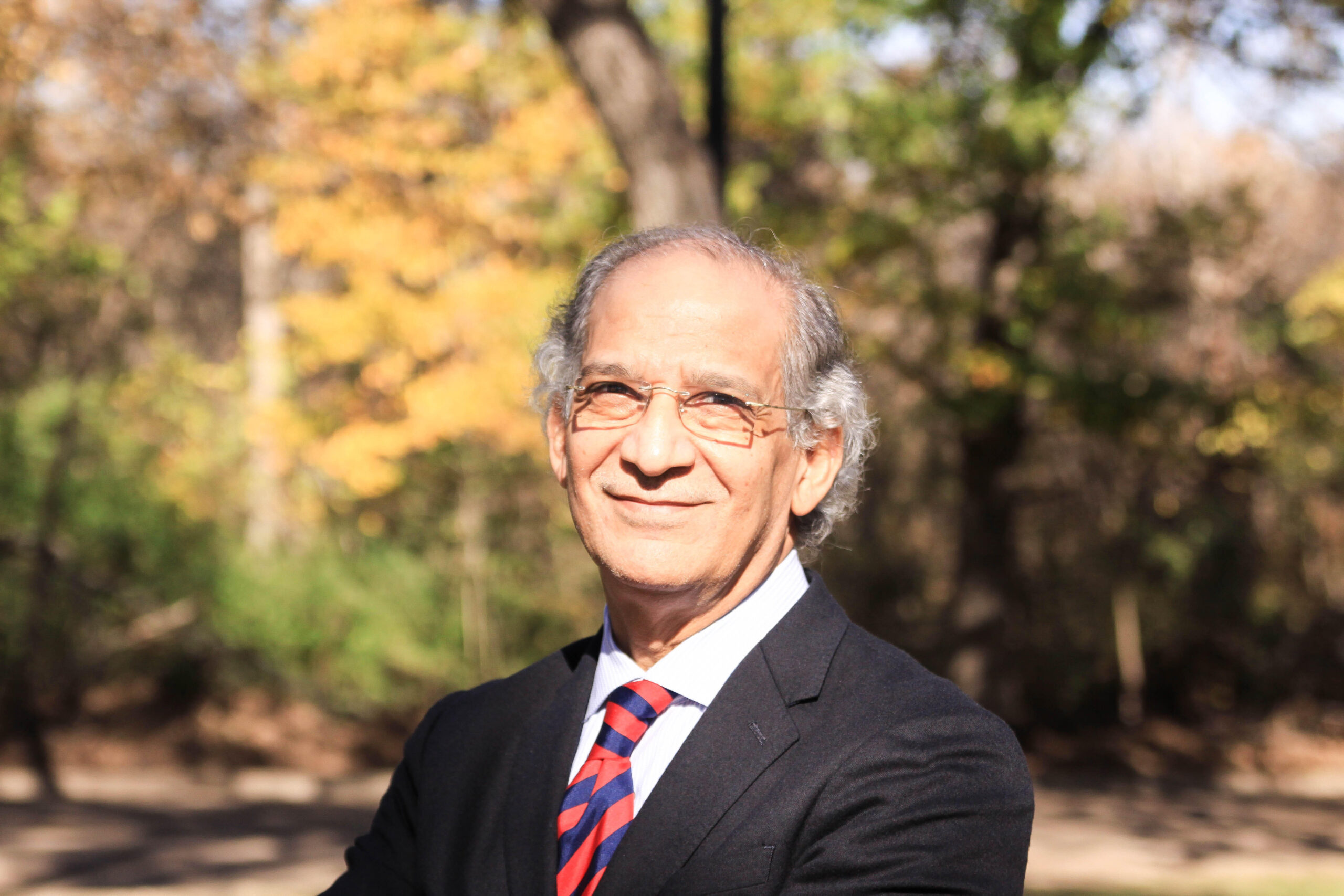
Prof. Mohsen Farid
University of Derby, United Kingdom
Biography
Prof. Mohsen Farid is a professor of Data Science and Computational Physics. He earned a Ph.D. in Computer Science from the Queen’s University Belfast, UK. He received his BSc in Physics and Mathematics with Distinction from Ain Shams University, Cairo, Egypt, and MS and Ph.D. ABD in Theoretical Physics from Polytechnic Institute of New York University.
Prof. Farid has published extensively in data analytics and computational modeling in various problem domains such as medical informatics, mental health, information theory in atomic and molecular physics, industrial processes, computational linguistics, image science, and Human-Computer Interaction (HCI).
Prof. Farid is a Fellow of the Institute of Mathematics and its Applications (IMA), a Fellow of the International Statistics Institute (ISI), a Senior Member of the IEEE, a Member of the British Computer Society, a Member of the British Classification Society and the Association for Computing Machinery (ACM) and Society of Industrial and Applied Mathematics (SIAM). He is an associate member of the CERN ALICE experiment. He is also a charted consultant in Data Analytics. Prof Farid is also a Fellow of the Royal Society of Arts (FRSA) International Statistical Institute (ISI).
He served as an advisor to the UNESCO. Mohsen also served on the faculties of several academic institutions in the United States, United Kingdom, and Egypt.
He has received an honorable mention from the US Army for work related to Breast cancer.
In addition to his contributions to academia, he engaged with industry at various levels; He was a senior consultant to IBM, MIDOR (a Mediterranean Oil Refinery), Microsoft, Ashton-Tate, and Prime Computer.
Moderator
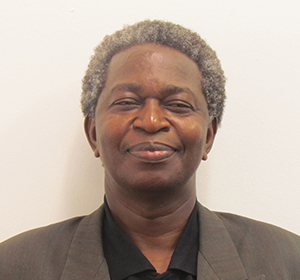
Prof. Thomas Afullo
Retired Professor
University of KwaZulu-Natal
Biography
Thomas J.O. Afullo obtained the BSc(Hons) in electrical engineering from the University of Nairobi in 1979; the MSc in electrical engineering from West Virginia University, USA in 1983; and PhD in electrical engineering from Vrije Universiteit Brussel (VUB), Belgium in 1989.
He was a telecommunications engineer with Kenya Posts & Telecommunications Corporation from 1979 to 1986. He joined Moi University, Kenya, as Tutorial Fellow in 1986, and left as Seniot Lecturer and Head of Department of Electrical & Communications Engineering in 1994. He was Lecturer in electronic engineering at the University of Botswana from 1996 to 2002. He joined University of Durban-Westville/University of KwaZulu-Natal (UKZN) as Associate Professor in January 2003; and was promoted to Full Professor of Electronic Engineering in January 2012. He retired from UKZN in December 2022.
Prof. Afullo is member of IEEE-Eta Kappa Nu (Mu-Eta Chapter). He is a Fellow of South African Institute of Electrical Engineers (FSAIEE); and Senior Member of the Institute of Electrical & Electronic Engineers (SMIEEE). He is as Professional Engineer (Pr.Eng.) with the Engineering Council of South Africa (ECSA); and a Fellow of South African Academy of Engineering (SAAE).
Prof. Afullo holds the South African National Research Foundation (NRF) C2 rating in 2012. He has successfully supervised/co-supervised 22 Ph.D. and 31 M.Sc. students, as well as 2 Postdoctoral students.
He has authored/co-authored 1 book, 69 journal papers and 138 refereed conference papers. He has a Google Scholar h-index of 19.
His research interests are in RF propagation modelling at millimetre & microwaves, powerline communications, free space optics, and 5G/6G indoor channel propagation models.
Innovation in Digital Transformation and AI
Date: Thursday, July 20, 2023
Time: 1730-1830 UTC
Speaker
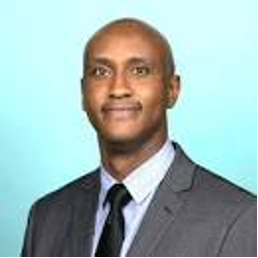
Tim Gitau, SMIEEE
Global Treasurer,
IEEE Humanitarian Technologies Board
Biography
Tim holds a bachelor’s degree in Electrical and Computer Engineering, emphasizing power and energy, and a Master of Science in Artificial Intelligence and Machine learning. He has experience in sales, projects, and people management in global corporations and a technology start-up. Tim has worked with multinational and multicultural colleagues and customers in over a dozen countries globally.
Tim has been an IEEE member since 2011, volunteering in numerous roles within the United States and Africa, making him an IEEE senior member. He currently serves as the Global Treasurer of the IEEE Humanitarian Technologies Board and supports the Power and Energy Society (PES) Conferences with financial reporting and reconciliation. He also serves on the Global IEEE finance committee as a voting member.
He is known for Technology applications and business knowledge in the Power and Energy fields plus mentoring and helping Advance Technology for Humanity at IEEE.
Moderator
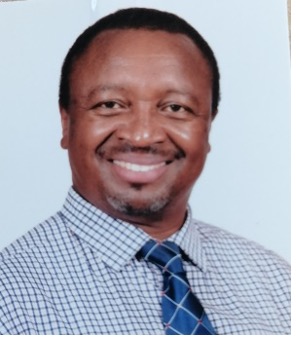
Dr. Eng. Shadrack Mambo
Senior Lecturer,
Walter Sisulu University
Biography
Dr. Eng. Shadrack Mambo is a holder of Doctor of Technology (D’Tech) degree in Electrical Engineering from Tshwane University of Technology and a Senior Lecturer at Walter Sisulu University. He received his Bachelors and Master’s degree in Radio and TV Engineering from Odessa Polytechnic Institute (OPI), Odessa, Ukraine in 1991. He has industry experience of over 15 years gained from various telecommunications companies he has worked for. In 2006, he joined academia as a lecturer at Kenyatta University and held various key positions such as Founding Chairman, Electrical & Electronics Engineering Department and later as Dean, School of Engineering & Technology.
Dr. Mambo is a member of the following professional bodies: Engineers Board of Kenya (EBK), Institute of Engineers of Kenya (IEK) and Senior Member (IEEE) and Chair, IEEE CASS, Kenya Section.
He is mentor to both his peers in the academic circles and students in the school. Currently, he is leading several research teams as either a principal investigator or a technical leader in different research projects, supervising 3 PhD candidates and 3 masters degree students, as well as final year undergraduate student projects.
Session 1
Technical Challenges and Potential Solutions for Distributed Generation and Mobility in the Developing World
Speaker
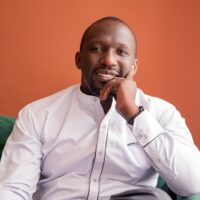
George Aluru
CEO,
Electricity Sector Association of Kenya (ESAK)
Moderator
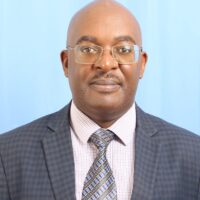
Prof. Eng. Christopher Maina Muriithi
Dean,
School of Engineering and Technology,
Murang’a University of Technology
Abstract
Distributed generation also known as distributed energy, on-site generation (OSG), or district/decentralized energy, is electrical generation and storage performed by a variety of small, grid-connected or distribution system-connected devices referred to as distributed energy resources (DER) at or near where the electricity will be used.
Conventional power stations, such as coal-fired, gas, and nuclear powered plants, as well as hydroelectric dams and large-scale solar power stations, are centralized and often require electric energy to be transmitted over long distances. By contrast, DER systems are decentralized, modular, and more flexible technologies that are located close to the load they serve, albeit having capacities of only 10 megawatts (MW) or less. These systems can comprise multiple generation and storage components; in this instance, they are referred to as hybrid power systems.
With distributed generation, the generators are closer to those who use the energy. Thus there’s less waste hence increased efficiency. However, as with every new technology, there are challenges: short circuit levels are increased, load losses change, voltage profiles change along the network, voltage transients will appear, congestions can appear in system branches, power quality and reliability may be affected and the networks protections may not function properly.
Biography
Speaker: Mr. George Aluru
Mr. George Aluru is the current CEO of ESAK, an association of private players in the electricity sector that advocates for collaboration in transforming the sector in Kenya. He also serves as the Chairperson of the Energy and Extractives Sector Board in The Kenya Private Sector Alliance. The Sector board focuses on the creation of an enabling environment for the private sector in Mining, Petroleum and Electricity.
He holds a Master’s Degree in Business Administration from the University of Nicosia in Cyprus and a Master of Science Degree in Renewable energy from the Carl von Ossietzky University of Oldenburg in Germany. He attained his Bachelor’s Degree in Telecommunications and Information Engineering from Jomo Kenyatta University of Science and Technology (JKUAT). Mr. George is pursuing a PhD at UNICAF University.
George is highly skilled in the energy space with 12 years of experience, in the planning, development and operation of power projects including Wind, Solar and Hydro projects in East Africa.
Moderator: Prof. Eng. Christopher Maina Muriithi
Eng. Christopher Maina Muriithi received his BSc and MSc in Electrical Power Engineering from Moscow Power Engineering Institute (National University) in 2001 and 2003 respectively. He has an earned PhD in Electrical Engineering from Jomo Kenyatta University of Agriculture and Technology (2012).
He is a registered professional engineer with the Engineers Board of Kenya and a licensed solar photovoltaic installer for grid-connected solar photovoltaic systems. He is a Professor of Electrical Engineering and the current Dean, School of Engineering and Technology, Murang’a University of Technology. He also serves as an adjunct professor in South Eastern Kenya University and the Pan African University Institute for Basic Science, Technology and Innovation (PAUSTI). He has published over 100 refereed conference and journal papers within his research interests and supervised to graduation over 30 Masters students and PhD Students. His research interests include Power Systems Analysis, Artificial Intelligence Applications in Power systems and Renewable Energy Technologies.
Session 2
Smart Sensors, the Catalysts of Transformation in the Smart Grid Advancements
Speaker
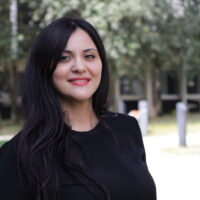
Prof. Ines Chihi
Professor, ,
University of Luxembourg
Moderator
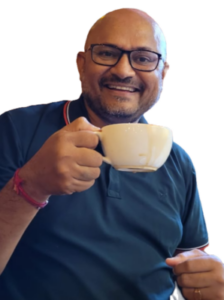
Ankit R. Patel
University of Minho, Portugal
Abstract
Integration of advanced measurement and communication technologies is crucial to the exponential growth of the Smart Grid. Smart Sensors are considered in this context as the driving force and catalyst behind the development of smart grids, delivering essential and beneficial information for precise control, improved supervision and optimized operations.
In this context, we will unveil the concealed portion of the iceberg concerning smart sensors to discover their roles in the transformation and progress of a resilient and robust smart grid.
Biography
Speaker: Prof. Ines Chihi
Born in Tunisia, Inès Chihi obtained her PhD degree in electrical engineering in 2013 and her “Habilitation Universitaire” in 2019 from the National Engineering School of Tunis. Until the end of 2021, she was a professor in electrical engineering in Tunisia. She is founder and president of the Association of Energy Efficiency and the Environment (AEEE) and member of the first Tunisian Network for Energy Transition. Since January 2022, Inès has joined the Department of Engineering at the University of Luxembourg. Her research focuses on electrical measurement and sensor technologies, with a particular emphasis on smart sensors and the estimation and identification of complex systems with unpredictable behaviours. Her innovative approaches find application in a wide array of fields, including bioengineering, energy, and industry 4.0. Her impactful contributions shape academia and foster a sustainable future.
Moderator: Ankit R. Patel
Ankit R. Patel is currently a doctoral student associated with the University of Minho, Portugal. He serves on the various positions at the international conferences like track chair for the 2023 IEEE ITEC, Detroit, USA; associate chair for the 2023 ACM IMX, Nantes, France; co-chair Diversity, Equity, and Inclusion (DEI) for the 2023 ACM AutomotiveUI, Ingolstadt, Germany; and proceedings chair for the 2023 IEEE e-Science, Limassol, Cyprus. He is a Chief Guest Editor for the Special Issue on “Human-Centered Advanced Driver Assistance Systems” in the Journal on Multimodal User Interfaces (JMUI). He also serves as an Associate Editor for the EAI Endorsed Transactions on Smart Cities and editorial board member for the Journal of Sustainable Urban Mobility. He received a best poster paper award in the 2019 IEEE/RSJ International Conference on Intelligent Robots and Systems (IROS), Macau. He also serves as a reviewer in many journals included Journal of Transport and Health (Elsevier); Energies, Sustainability, Future Transportation (MDPI); and conferences IFAC, CHI, ozCHI, INTERACT, TRB, NordiCHI, MuC, ITS America. His research interest includes users and society, human factors and interactions, socially inclusive transportation, and transport psychology.
Recent Advances in Data Science
Speaker
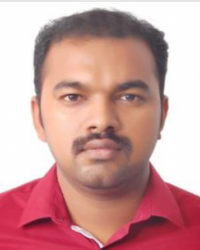
Dr. T. Ananth Kumar
Associate Professor in Computer Science and Engineering,
IFET College of Engineering,
India
Moderator
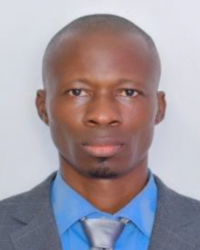
Engr Sunday Adeola Ajagbe
Lecturer at the Computer Engineering Department,
First Technical University,
Ibadan, Nigeria,
Abstract
The field of data science focuses on the collection, processing, and analysis of data, as well as its presentation in a graphical format, with the end goal of assisting businesses and other organisations in making crucial business decisions. Data scientists are in high demand. There is currently a significant increase in the demand for data scientists. In spite of this, there is a very low number of people applying for these jobs, which highlights the fact that even though there is a high demand, the supply is not keeping up with it. The field of data science is only anticipated to expand further as new developments in related fields, such as technology, become more widespread.
Data science is currently a developing field, so there is a significant amount of room for it to expand. It now stands apart from other major professions in more ways than one thanks to recent discoveries and trends in the field. One must have an understanding of the developing technologies in data science that are reshaping the future in a positive direction in order to appreciate the opportunities that this field makes available.
Biography
Speaker: Dr. T. Ananth Kumar
Dr. T. Ananth Kumar is working as Associate Professor in Computer Science and Engineering, IFET college of Engineering afflicted to Anna University, India. He is currently acting as a Research-Head in IFET College of Engineering, India. Dr. T. Ananth kumar received his Ph.D. degree in VLSI Design from Manonmaniam Sundaranar University, Tirunelveli. He received his Master’s degree in VLSI Design from Anna University, Chennai and Bachelor’s degree in Electronics and communication engineering from Anna University, Chennai. He has presented 150+ papers in various Conferences and indexed Journals. His fields of interest are Networks on Chips, Computer Architecture Data Science and ASIC design. He is the life member of ISTE, Senior Member IEEE and few membership bodies. He has 9 Indian Patents and 1 International patents. He is the recipient of the Best Paper Award at INCODS 2017, Class-A award from IIT Bombay.
Moderator: Engr Sunday Adeola AJAGBE
Engr Sunday Adeola AJAGBE is a faculty member and lecturer at Computer Engineering Department, First Technical University, Ibadan, Nigeria. He is a registered professional Engineer licensed by The Council for Regulation Engineering in Nigeria (COREN) as a Professional Engineer and a member of many professional bodies both within and outside Nigeria. Also, he has published numerous papers in top scientific journals to his credit. He was ranked three hundred and fifty-nine (359) in 2020-2023 Nigeria SciVal output by Elsevier
The Problematic Problems of Human Trust in Robots: Is Trusting a Robot More Like a Teammate or a Tool and Should We Really Care?
Speaker
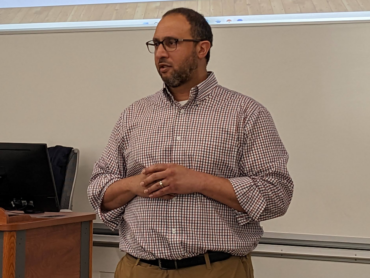
Prof. Lionel P. Robert Jr.
Professor,
University of Michigan,
USA
Moderator
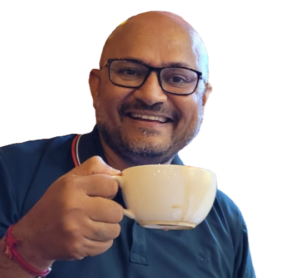
Ankit R. Patel
University of Minho,
Portugal
Abstract
As robotics advances and permeates various aspects of our social and work lives, the question of how humans view and ultimately trust robots has become increasingly pertinent. Do humans view them as mere machines, automated tools designed to serve their needs or do they embrace a more empathetic approach, viewing and trusting them as actual teammates (i.e., humans)? On the one hand, proponents of robots argue that computers are social actors (CASA) and humans mindlessly interact with computers in much the same way as they do with other humans. This view is often used to justify the employment of human-to-human theories and their corresponding measures to understand human-robot interactions. On the other hand, advocates of mechanization contend that humans do not view robots as humans but instead as automated tools. This view discourages using human-to-human theories and their corresponding measures to understand human-robot interactions. They advocate for more human-to-automation theories and measures of constructs like trust. In this thought-provoking presentation, I will explore the arguments supporting both perspectives and consider the potential consequences of each approach. Ultimately, this presentation aims to provide a balanced understanding of the complexities involved to encourage a nuanced dialogue on the subject.
Biography
Speaker: Prof. Lionel P. Robert Jr.
He holds the position of Professor in the School of Information at the University of Michigan and boasts a number of distinguished memberships, including AIS Distinguished Member Cum Laude and IEEE Senior Member. Dr. Robert obtained his Ph.D. in Information Systems from Indiana University, where he was a BAT Fellow and KPMG Scholar. Currently, he is the director of the Michigan Autonomous Vehicle Research Intergroup Collaboration (MAVRIC) and affiliated with various institutions, including the University of Michigan Robotics Institute, the National Center for Institutional Diversity at the University of Michigan, and the Center for Computer-Mediated Communication at Indiana University. Additionally, he is a member of the AAAS Community Advisory Board. Dr. Robert’s research interests revolve around technology-mediated collaboration, which is reflected in his published works in leading information systems and information science journals as well as notable computer and robotics conferences. His research has garnered numerous accolades, including best paper awards/nominations from the Journal of the Association of Information Systems, the ACM Conference on Computer-Supported Cooperative Work, SAE International, and the ACM/IEEE International Conference on Human–Robot Interaction.
Dr. Robert has received research funding from various sources, such as the AAA Foundation, Automotive Research Center/U.S. Army, Army Research Laboratory, Toyota Research Institute, MCity, Lieberthal-Rogel Center for Chinese Studies, and the National Science Foundation. He has also been featured in print, radio, and television for major media outlets like ABC, CBS, CNN, CNBC, Michigan Radio, Inc., New York Times, and the Associated Press.
Moderator: Ankit R. Patel
Ankit R. Patel is currently a doctoral student associated with the University of Minho, Portugal. He serves on the various positions at the international conferences like track chair for the 2023 IEEE ITEC, Detroit, USA; associate chair for the 2023 ACM IMX, Nantes, France; co-chair Diversity, Equity, and Inclusion (DEI) for the 2023 ACM AutomotiveUI, Ingolstadt, Germany; and proceedings chair for the 2023 IEEE e-Science, Limassol, Cyprus. He is a Chief Guest Editor for the Special Issue on “Human-Centered Advanced Driver Assistance Systems” in the Journal on Multimodal User Interfaces (JMUI). He also serves as an Associate Editor for the EAI Endorsed Transactions on Smart Cities and editorial board member for the Journal of Sustainable Urban Mobility. He received a best poster paper award in the 2019 IEEE/RSJ International Conference on Intelligent Robots and Systems (IROS), Macau. He also serves as a reviewer in many journals included Journal of Transport and Health (Elsevier); Energies, Sustainability, Future Transportation (MDPI); and conferences IFAC, CHI, ozCHI, INTERACT, TRB, NordiCHI, MuC, ITS America. His research interest includes users and society, human factors and interactions, socially inclusive transportation, and transport psychology.
Enabling Next Generation Wireless Communication through mm-Wave Reconfigurable Intelligent Surface (RIS)
Speaker
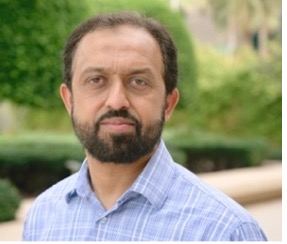
Prof. Atif Shamim
Professor,
King Abdullah University of Science and Technology (KAUST),
Saudi Arabia
Moderator
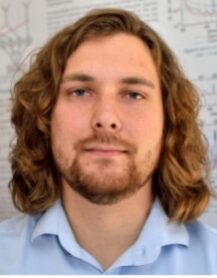
Dr. Heinrich Edgar Arnold Laue
Senior Lecturer,
University of Pretoria,
South Africa.
Abstract
The mm-wave 5G and beyond communication systems significantly improve the data rate, user capacity, and latency, however, the electromagnetic (EM) wave propagation suffers from high atmospheric attenuation as compared to the sub-6 GHz bands. Therefore, the quality of wireless communication gets severely affected in an environment where multiple obstacles, such as buildings and trees, are present, and thus, communication coverage is typically limited to line of sight (LOS). In order to maintain a high-quality communication link, reconfigurable intelligent surfaces (RIS) can help by providing a secondary LOS. RIS is a specially designed periodic structure that can be reconfigured to reflect the EM signal in the desired direction. With the help of RIS, the wireless environment can become controllable and programmable, and can thus bring unprecedented new opportunities for mm-Wave wireless communication systems. Despite the growing interest in RIS, and a lot of theoretical work reported by the communication society, there is still a dearth of published works demonstrating practical implementations and experimental results. This is particularly true for experimental demonstrations of wideband RIS covering both n257 and n258 mm-wave bands for 5G communication. In this talk, first, fundamental concepts related to RIS are introduced, and then EM design, prototyping steps and complete experimental characterization of a wideband RIS is shown that covers the mmWave 5G band (22.5 – 29.5 GHz (~27% bandwidth)), with a beam scanning capability of 50°. With low cost and volume manufacturing in mind, another wideband mm-Wave RIS design is presented which is fully screen-printed. This design uses novel printed switches based on Vanadium-di-oxide phase change material. Finally, an RIS design realized through an optically transparent metallic ink is shown.
Biography
Speaker: Prof. Atif Shamim, Full Professor, KAUST
He received his MS and PhD degrees in electrical engineering from Carleton University, Canada in 2004 and 2009 respectively. He was an NSERC Alexander Graham Bell Graduate scholar at Carleton University from 2007 till 2009 and an NSERC postdoctoral Fellow in 2009-2010 at Royal Military College Canada and KAUST. In August 2010, he joined the Electrical and Computer Engineering Program at KAUST, where he is currently a Full Professor and Principal Investigator of IMPACT Lab. He was an invited researcher at the VTT Micro-Modules Research Center (Oulu, Finland) in 2006. His research work has won best paper awards in IEEE ICMAC 2021, IEEE IMS 2016, IEEE MECAP 2016, IEEE EuWiT 2008, first prize in IEEE IMS 2019 3MT competition and IEEE AP-S Design Competition 2022, finalist/honorable mention prizes in IEEE AP-S Design Competition 2020, IEEE IMS 2017 (3MT competition), IEEE IMS 2014, IEEE APS 2005 and R. W. P. King prize for journal papers in IEEE TAP 2017 and 2020. He has been selected as the Distinguished Lecturer for IEEE AP-S (2022-2024). He has won the Kings Prize for the best innovation of the year (2018) for his work on sensors for the oil industry. He was given the Ottawa Centre of Research Innovation (OCRI) Researcher of the Year Award in 2008 in Canada. His work on Wireless Dosimeter won the ITAC SMC Award at Canadian Microelectronics Corporation TEXPO in 2007. Prof. Shamim also won numerous business-related awards, including 1st prize in Canada’s national business plan competition and was awarded OCRI Entrepreneur of the year award in 2010. He is an author/co-author of around 300 international publications, an inventor on 40 patents and has given close to 100 invited talks at various international forums. His research interests are in innovative antenna designs and their integration strategies with circuits and sensors for flexible and wearable wireless sensing systems through a combination of CMOS and additive manufacturing technologies. He is a Senior Member of IEEE, founded the first IEEE AP/MTT chapter in Saudi Arabia (2013) and served on the editorial board of IEEE Transactions on Antennas and Propagation (2013-2019), and as a Guest Editor for IEEE AWPL Special issue (2019), and is currently serving as an Associate Editor for IEEE Journal of Electromagnetics, RF and Microwaves in Medicine and Biology. He serves on numerous IEEE committees such IEEE Technical committees on Antenna Measurements (AP-S), Microwave Controls (MTT-S 13), and Additive Manufacturing (CRFID).
Find out more details at https://cemse.kaust.edu.sa/impacts
![]()
Moderator: Dr. Heinrich Edgar Arnold Laue
He is a Senior Lecturer at the University of Pretoria and received his Ph.D. in engineering from the University of Pretoria, South Africa in 2020. His primary research interest is compressive antenna arrays and he has publications in journals and magazines of the IEEE Signal Processing, Antennas and Propagation, and Microwave Theory and Technology Societies. After four years in industry, he joined the Department of Electrical, Electronic and Computer Engineering at the University of Pretoria as a Senior Lecturer in May 2023. Dr Laue served as an IEEE Antennas and Propagation Society Young Professional Ambassador for the year 2022 and currently serves as the Students and Young Professionals coordinator for the IEEE South Africa AP/MTT/EMC Joint Chapter. He is Track Chair for IEEE AFRICON 2023 Track 3: Wireless Communication Systems, Antennas, Microwave Systems and Propagation Models.